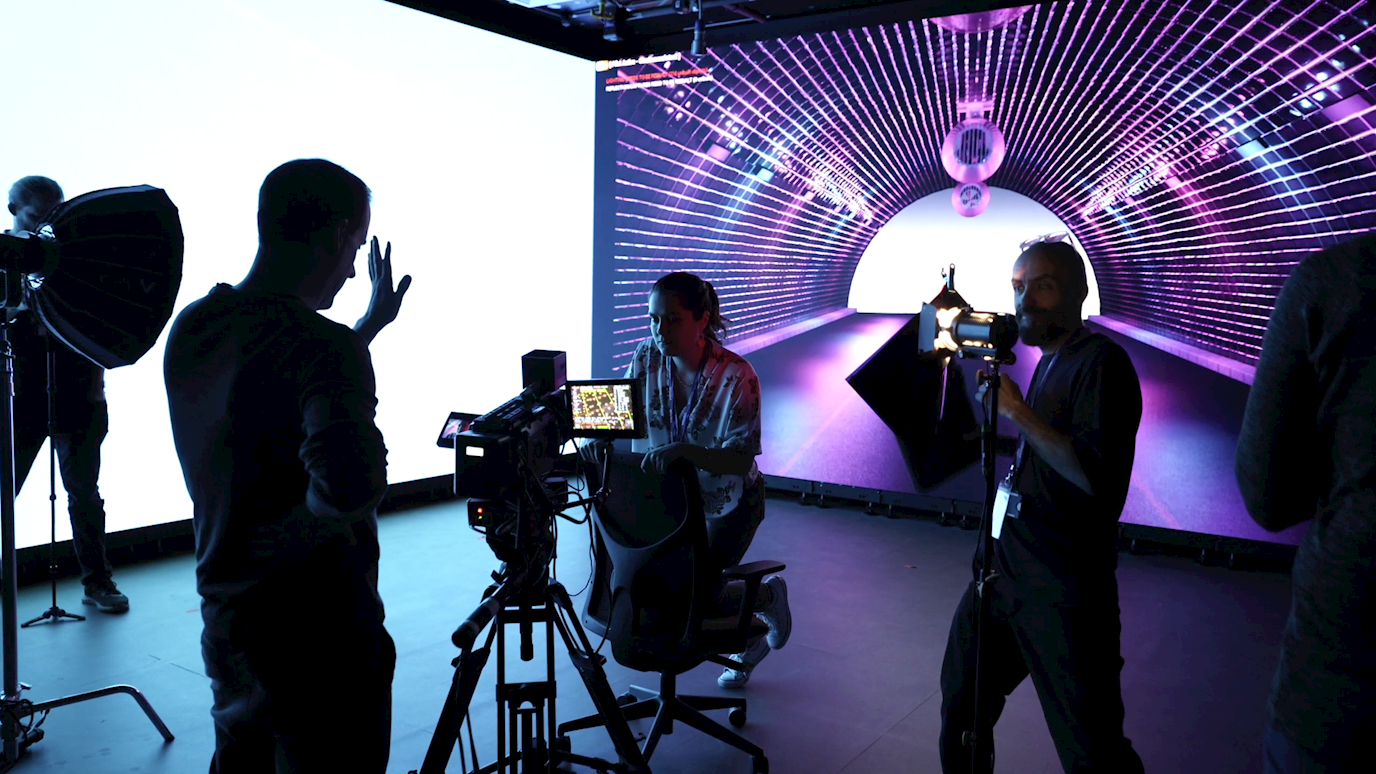The government has today, 13 June, announced that Royal Holloway, University of London, is the preferred bidder for the national Convergent Screen Technologies and performance in Realtime (CoSTAR) lab.

Credit: StoryFutures / Liminal Stage Productions
This was announced as part of the government’s Creative Industries Sector Vision to maximise the potential of the UK creative industries and grow the economy.
This sector vision builds on more than £230million in government spending on the creative industries since 2021. This includes £75.6million to build the largest virtual production research and development network in Europe to put the UK at the forefront of advancements in visual effects, motion-capture technology, and AI for the screen industries and live performance. The government also announced that regional research labs will be based in Yorkshire, Dundee and Belfast with a national lab in Buckinghamshire. The programme will be supported with an additional £63million investment from industry.
The national CoSTAR lab and three regional research and development labs will ensure the UK has the skills and infrastructure to stay on the cutting-edge of new virtual production techniques in film, TV and live events, which involve using computer-generated imagery (CGI), augmented reality and motion capture to create ‘virtual sets’.
Instead of adding visual effects and CGI in post-production, virtual production allows filmmakers and theatre directors to create large-scale digitally-generated environments using LED panels that performers can interact with in real-time, as a quicker and less expensive alternative to green screens. The technology has been used in the ABBA Voyage live concert and the Batman and Minecraft immersive experiences in the UK, as well on Disney’s hit show The Mandalorian.
The development of the national lab will be led by Royal Holloway with core partners Pinewood Studios, disguise, BT, Surrey County Council, Buckinghamshire Local Enterprise Partnership, University of Surrey, Abertay University and National Film and Television School (NFTS).
Culture Secretary, Lucy Frazer, said: “The imagination and ingenuity of British designers, producers, content creators, writers and artists are spearheading growth right across our economy.
“The government is backing our creatives to maximise the potential of the creative industries. This Sector Vision is about driving innovation, attracting investment and building on the clusters of creativity across the country. And from first days at school to last days of work, we will nurture the skills needed to build a larger creative workforce to harness the talent needed for continued success.
“Working with the industry this vision is helping the UK creative sectors go from strength to strength - providing jobs and opportunities, creating world leading content and supporting economic growth across the country.”
UK Research and Innovation Creative Industries (UKRI) Sector Champion, Professor Christopher Smith, added: “The creative industries are a UK success story, key to the UK’s prosperity, wellbeing and resilience. From design to screen, fashion and textiles to heritage, they are generating high-quality employment and innovation.
“UKRI’s creative industries investments, including CoSTAR, Creative Catalyst and the Creative Industry Clusters Programme, will catalyse the research and innovation that are crucial for this fast-growing and important sector.
“The creative industries are now firmly embedded in the research and development ecosystem, ensuring that the UK remains a genuine world leader in the industries of the future.”
Today’s announcement of the preferred bidders for CoSTAR is subject to internal government approvals processes, and where relevant, commercial discussions with external partners. Partner organisations such as BT, the National Film and Television School, Vodafone, Studio Ulster and Screen Yorkshire have today announced they will invest at least £63.3 million in CoSTAR.
























